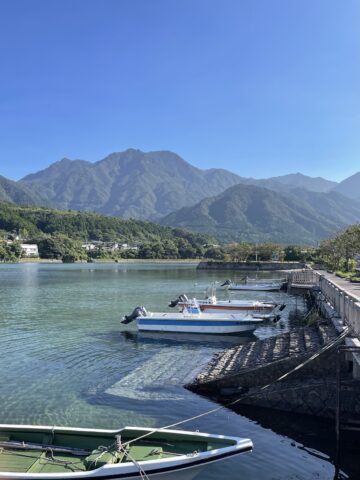
ダウンロード
場所
Online and DIJ Tokyo (access)
登録情報
This is a past event. Registration is no longer possible.
DIJ Mailing Lists
Please subscribe below to stay informed about our research activities, events & publications:
Sustainability at Risk: Unraveling Yakushima's Complex Layers of Realities
2024年11月26日
Mathieu Gaulène, University of Nîmes
At first glance, the island of Yakushima presents an appearance of peaceful stability, that of a nature preserved from human influence, embodied by millennial cedars. Superimposed on this ideal-typical view of nature is its symbolic double: the imaginary forest featured in the anime Princess Mononoke, which, in turn, reinforces the perception of Yakushima as representing true nature, thus enhancing its attractiveness.
Yet, beneath this layer of symbolic and natural reality other realities emerge – different ways of inhabiting and transforming this territory by various stakeholders at different times, turning it into multiple ambient worlds (milieux). These complex layers of realities raise questions about their potential interactions and the risks of disruption. In other words, how can the different stakeholders living on the island continue to coexist in a sustainable way?
By stakeholders, the presenter refers to locals and their activities (tourism, industry, forestry, etc.), tourists, non-human animals, plants, all other forms of living entities, kami and other beings of the supernatural world, as well as symbols. These diverse entities or signs share a common territory and must establish stable relationships to form a cohesive collective, which could be described as an eco-semiosphere. This research aims to better understand these relationships, identify the conditions for their stability, and prevent potential disruptions.
Mathieu Gaulène is an Associate Professor (tenure-track) in Sustainability Science at the Chronic and Emerging Risks Laboratory at the University of Nîmes, France. He holds a PhD in Anthropology and Semiotics, and spent several years researching the Fukushima Daiichi nuclear disaster, addressing political aspects as well as analyzing the narratives of the stakeholders involved in this disaster. He is also conducting ongoing research on the memorialization process of 3.11 disaster in Fukushima and Rikuzentakata, a project initiated during a JSPS Postdoctoral fellowship at Tōhoku University. Additionally, he is beginning a new research focus on Yakushima.